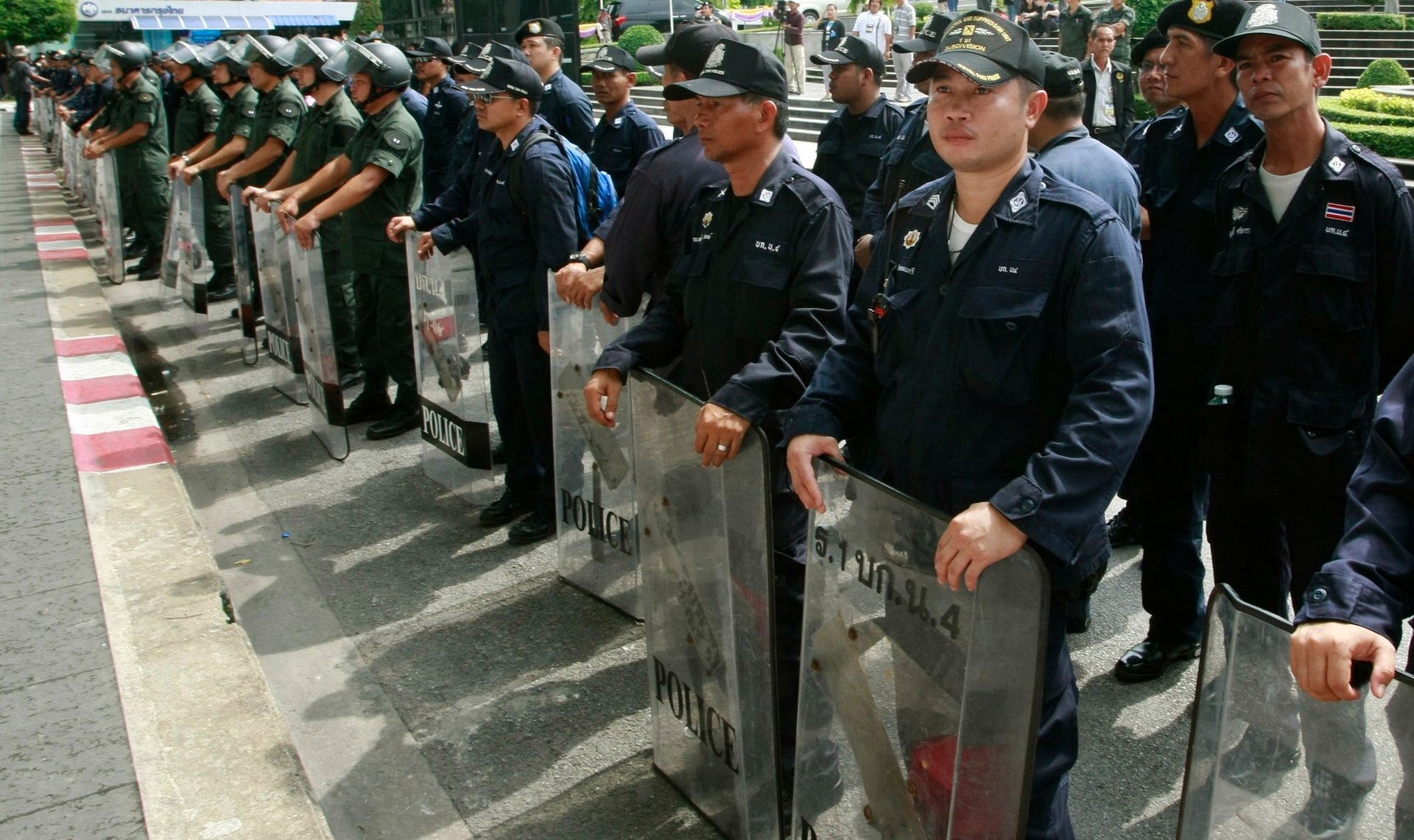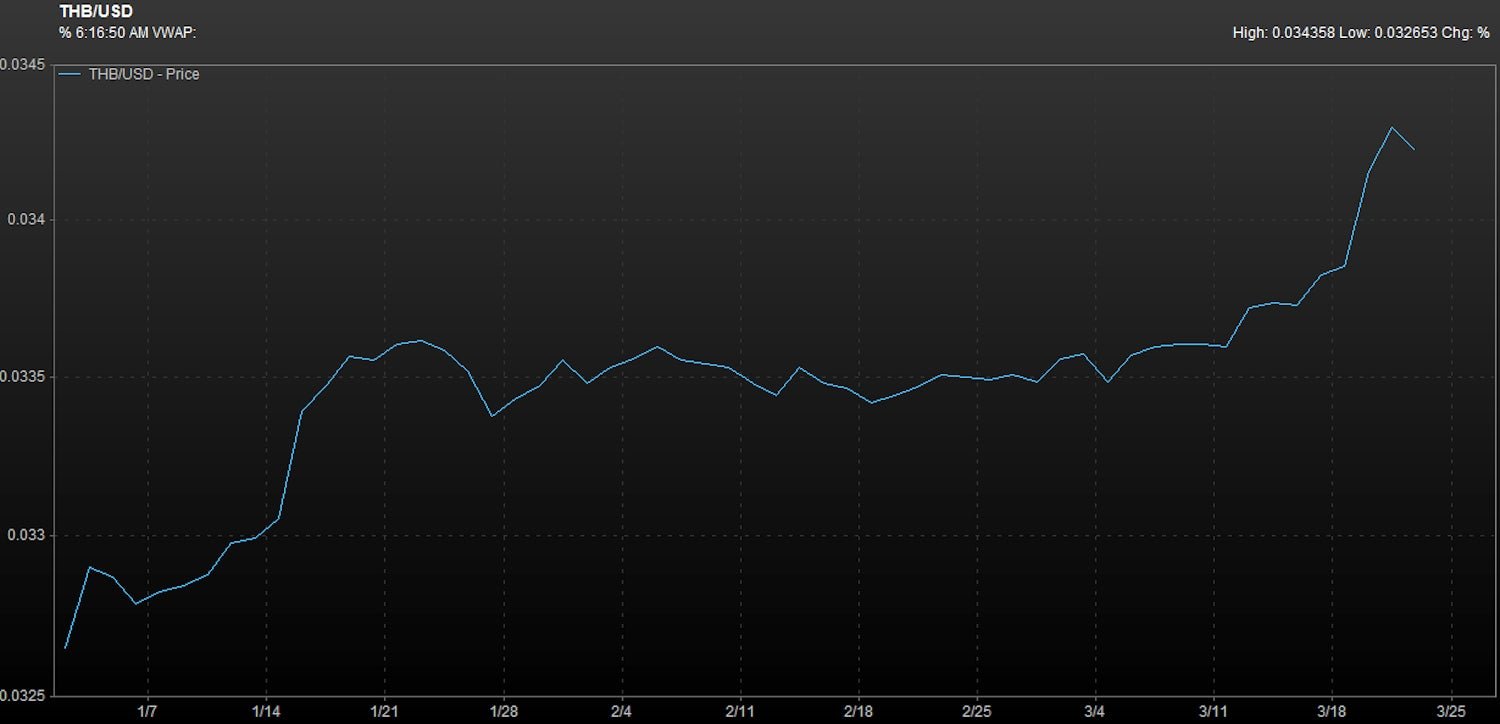Why the Thai baht is not exactly a one-way bet
Because of the nation’s burgeoning economy and business-friendly government, Thailand’s currency, the baht, has been a star performer in 2013 and investors remain extremely bullish.


Because of the nation’s burgeoning economy and business-friendly government, Thailand’s currency, the baht, has been a star performer in 2013 and investors remain extremely bullish.

They could well be too optimistic. Like many Asian countries, Thailand has a big export sector and likes to protect its manufacturers from huge gains in the domestic currency. (South Korea is grappling with a similar problem.)
And Thailand has shown a tendency to try and talk its currency down when it fears inflows are getting too big.
The Bangkok administration has also said it will not take aggressive steps to weaken the baht. Thai policymakers do fear an extremely weak currency, due to bad memories of the baht’s collapse during the 1990s Asian crisis.
That said, there could also be political instability ahead for Thailand. Prime Minister Yingluck Shinawatra’s government is the most stable since 2006 when Yingluck’s older brother, Thaksin, was ousted in a coup. But Thailand still has a huge anti-Shinawatra opposition that regularly takes to the Thai capital’s streets in protest against the government. The opposition is largely made up of Bangkok intellectuals who view the family as corrupt, and military generals who want power for themselves. Thailand’s King Bhumibol, who is deeply revered, is elderly and in frail health. His passing could cause the instability that gives rise to the next overthrow of the government, which would of course reduce the value of all Thai assets, including the currency.